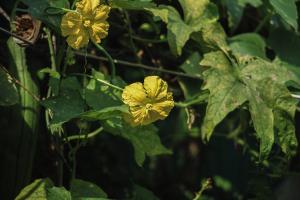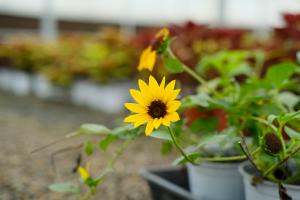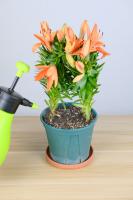Is Caterpillar Poop Good for Plants?
Caterpillar poop, also known as frass, is a common sight in gardens where caterpillars feed on plants. As an organic substance, frass has been studied for its potential benefits to plants. In this article, we will explore the question of whether caterpillar poop is good for plants and how it can be used in gardening.
What is Frass?
Frass is the excrement of caterpillars and other insects. It is usually small, pellet-like, and brown or black in color. Frass may contain the remains of partially digested plant material as well as other waste products from the insect’s body. While it may not be the most pleasant substance to encounter in your garden, frass plays an important role in the ecosystem as a natural fertilizer.
Benefits of Caterpillar Poop for Plants
Frass contains various nutrients that plants need for healthy growth, such as nitrogen, phosphorus, and potassium. In addition to these primary nutrients, frass also contains trace minerals and beneficial microorganisms that can improve soil health and boost plant growth. Studies have shown that using frass as a soil amendment can increase soil fertility, enhance root development, and improve disease resistance in plants.
How to Use Caterpillar Poop in Gardening
There are several ways to use frass in gardening. One option is to simply sprinkle it around the base of your plants as a natural fertilizer. This can be especially beneficial for plants like tomatoes, peppers, and other heavy feeders that require a lot of nutrients to thrive. Frass can also be added to compost piles to enrich the soil with beneficial microorganisms and nutrients.
Another way to use frass in gardening is to make a compost tea. To do this, soak a small amount of frass in water for several days and then strain out the solids. The resulting liquid can be used to water your plants or sprayed on the foliage. Compost tea made with frass can help stimulate plant growth and improve disease resistance.
Where to Find Frass
If you have caterpillars feeding on your plants, frass should be easy to find. Simply look for small piles of brown or black pellets around the base of your plants or on the leaves. However, if you don’t have caterpillars in your garden, you can purchase frass online or at your local garden store.
Conclusion
In conclusion, caterpillar poop, or frass, can be a valuable resource for gardeners looking to improve soil health and boost plant growth. Its nutrient-rich composition makes it an excellent natural fertilizer and soil amendment, while its beneficial microorganisms can help improve disease resistance in plants. Whether you choose to sprinkle it around your plants, add it to your compost pile, or make a compost tea, frass is a sustainable and eco-friendly way to improve your garden’s health.

 how many times do yo...
how many times do yo... how many planted tre...
how many planted tre... how many pine trees ...
how many pine trees ... how many pecan trees...
how many pecan trees... how many plants comp...
how many plants comp... how many plants can ...
how many plants can ... how many plants and ...
how many plants and ... how many pepper plan...
how many pepper plan...






























